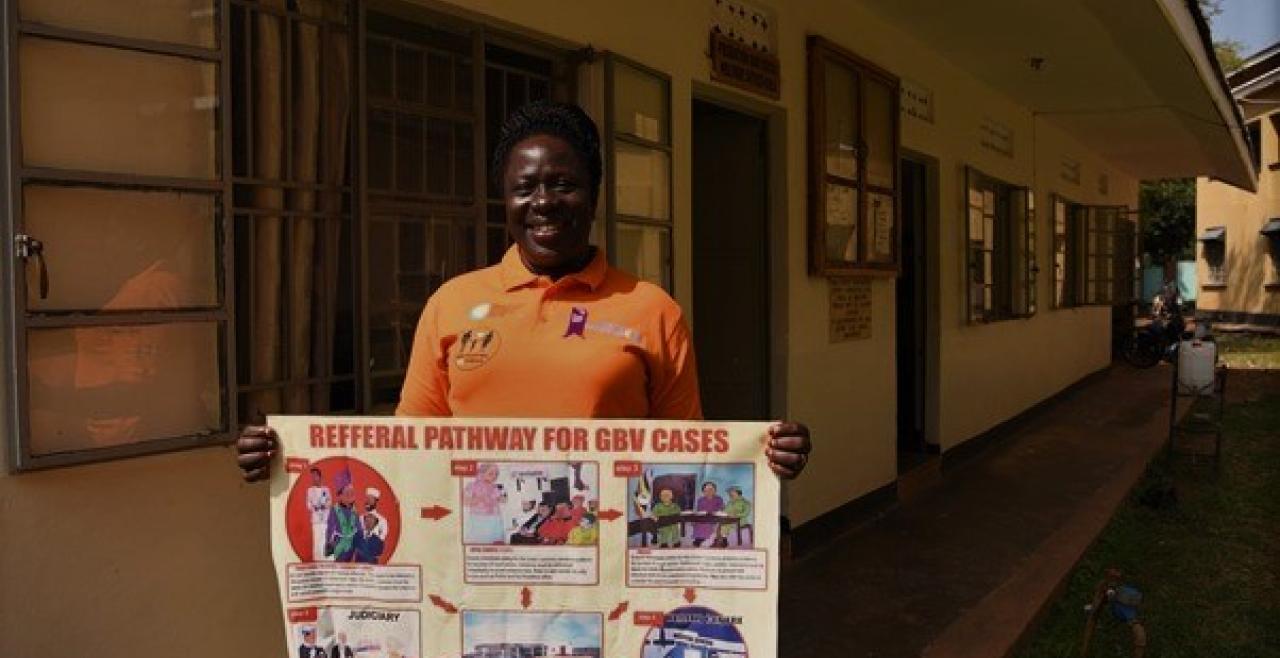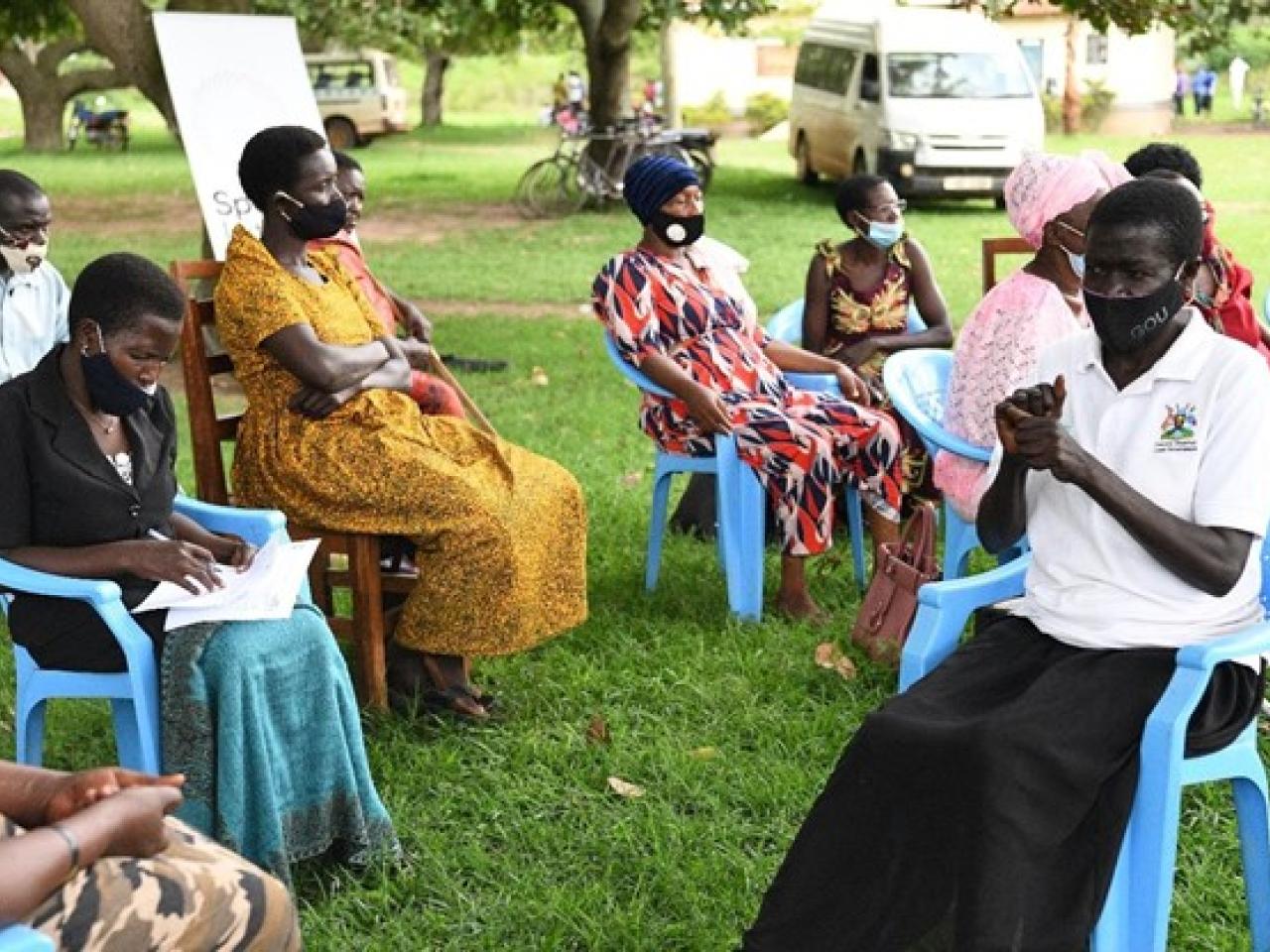The activists working to end gender-based violence in Northern Uganda

GULU DISTRICT, Uganda - In Uganda, 56 per cent of women experience violence in their lifetime. But in the northern district of Gulu – as across the country – activists are working within their communities to change those statistics.
Below, partners working with Spotlight Initiative and UN Women to end violence against women and girls share their stories.
"We work with civil society, cultural and religious leaders to raise awareness of violence and put prevention mechanisms in place." - Jessica Anena, Senior Probation and Social Welfare Officer
JESSICA ANENA, SENIOR PROBATION AND SOCIAL WELFARE OFFICER, GULU DISTRICT POLICE FORCE
Jessica Anena has been working in Gulu District as Senior Probation and Social Welfare Officer for 16 years. She is also the Gender Focal Point for Gulu, a government duty assignment.
How are you working to end violence against women and girls (VAWG) in Gulu?
Violence against women and girls is a human rights concern. We have noticed that several women and girls have been violated physically, sexually, emotionally and psychologically in Gulu. Sexual violence is on the rise here and [during the school lockdown period from March 2020 to June 2021], there were 4,451 teenage pregnancies recorded.
We [the Gulu Police Force] work with our partners and coordinate with civil society, cultural and religious leaders to come together and raise awareness of VAWG, as well as put prevention mechanisms in place.
How are you coordinating at community level to address violence against women and girls?
We have created a number of structures at community level: Child Protection Committees, para-social workers and the Local Council – all of these are able to address incidences of VAWG. We also work with religious and cultural leaders to increase their capacity to handle these issues.
Can you share a recent achievement in the region?
As police, we are proud to have developed the Gender-Based Violence Standard Operating Procedures for Gulu in 2020. This document is used by all duty bearers and stakeholders to ensure adherence to certain standards and principles – such as confidentiality and non discrimination – and to strengthen referral systems and accountability. Even the traditional leaders have seen these guidelines. As a result, we are seeing perpetrators being apprehended, knowledge being shared, communities reporting cases and duty bearers taking their responsibilities seriously.
SAMUEL ORACH, PROGRAMME ASSISTANT, NATIONAL UNION OF WOMEN WITH DISABILITIES UGANDA (NUWODU)
Samuel Orach has been working with the National Union of Women with Disabilities of Uganda (NUWODU) for the past three years and has a professional history of working to further sexual and reproductive health and rights. NUWODU brings together women and girls with disabilities and supports them to advocate for their rights, fight discrimination and eliminate violence against women and girls with disabilities. He works in four districts: Gulu, Nwoya, Amuru and Omoro.
What is driving your work with NUWODU in Gulu?
Women with disabilities are some of the most oppressed and abused women in our society here. Look at how society treats women – this [discrimination] is doubled when women are living with disabilities. We have been working hard to advocate for an end to violence against women with disabilities.
What role do men have to play in this work?
Men have to take up the mantle, be the ones to advocate. They need to show that they are part of the fight to end violence against women and girls. NUWODU has trained male and female champions who go into communities and help survivors to report abuse and ensure they get justice.
On a personal level, a man’s role starts at home. I have a duty to make sure women feel safe around me and to create a conducive environment for women to live in. Women must feel safe and free to express themselves and their needs.
By Eva Noma Sibanda

